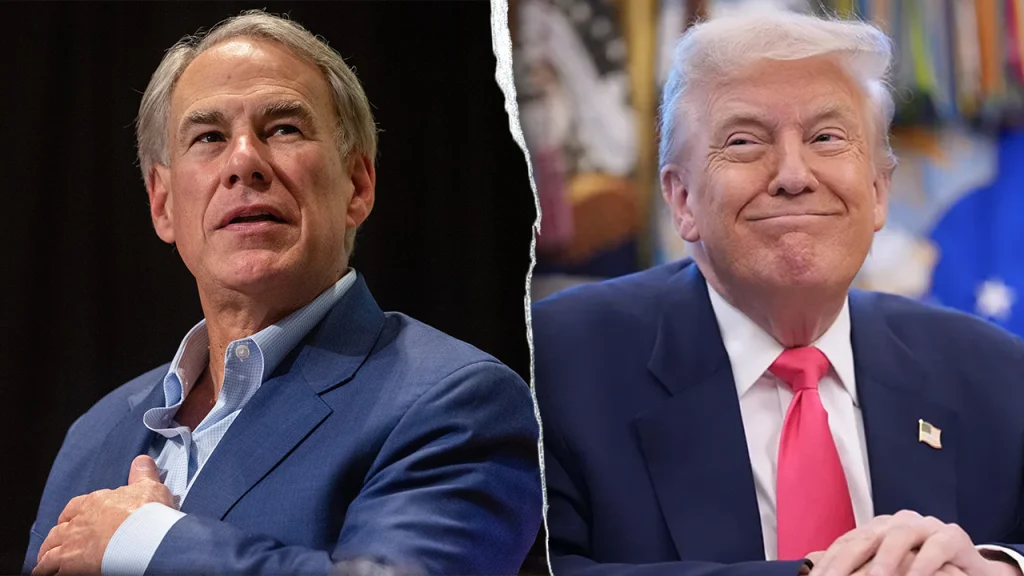Abbott Reveals Strong Partnership with Trump Based on Shared Values of Law and Order
In a revealing interview with Fox News Digital, Texas Governor Greg Abbott opened up about the foundation of his productive relationship with President Donald Trump, emphasizing their mutual commitment to fundamental principles that guide their governance. “President Trump and I have a good, long-standing, working relationship, and there’s a substantive reason behind that. We both believe in the rule of law. We both believe in public safety. We both believed in securing the borders,” Abbott explained. This alignment of core values has created a natural partnership between the Texas governor and the president, particularly evident in their recent collaborative efforts addressing immigration enforcement challenges in Chicago. Abbott expressed his willingness to partner with the federal government in maintaining national security, highlighting how their shared vision enables them to work effectively together despite the complex political landscape surrounding immigration enforcement.
The practical manifestation of this partnership is currently visible in the Chicago area, where approximately 200 Texas National Guard troops have been deployed to protect federal law enforcement officers conducting immigration operations. This deployment comes in response to escalating anti-ICE demonstrations that have sometimes turned violent. Federal agents have faced significant opposition, including being blocked, rammed, and trapped by protesters. According to the Department of Homeland Security, these federal officers have received minimal support from Illinois’ Democratic leadership or local law enforcement, creating a dangerous situation for those attempting to carry out federal immigration laws. The deployment represents a significant interstate cooperation initiative authorized by Abbott, who allowed President Trump to utilize 400 Texas National Guard troops under Title 10 authority, though only half have been deployed thus far as legal challenges work their way through federal courts.
Governor Abbott highlighted the specialized experience that makes Texas National Guard members particularly qualified for this assignment. “What the National Guard is trained and skilled at doing is dealing with civil unrest like that. They dealt with civil unrest along the Texas border for the past four years while Joe Biden was president,” Abbott noted. The governor emphasized that these troops have extensive experience managing tense situations at the Texas border and handling civil disturbances within Texas itself, making them well-prepared to assist in maintaining order in Illinois. This deployment leverages the expertise developed through years of border security operations, applying those skills to support federal immigration enforcement in areas experiencing significant resistance. Abbott characterized this extension of assistance as “only natural,” given the Texas National Guard’s specialized training and experience in similar situations.
The governor carefully articulated the specific role of the Texas National Guard in this deployment, making a clear distinction between their mission and local law enforcement responsibilities. “What Texas is trying to do is the same thing the United States is trying to do. And that is very simply, carrying out the functions of the federal government,” Abbott explained. He emphasized that the National Guard troops are not there to police Chicago or supersede local authority, but rather to “ensure the safety and security of the ability of federal officials to fulfill their constitutional duty to enforce the laws of the United States.” This careful framing presents the deployment as supporting constitutional functions rather than an intrusion into local governance, though the action has nonetheless sparked legal challenges from Illinois officials who view it differently. The deployment represents a significant test case for interstate cooperation on immigration enforcement under the new administration.
The Chicago situation highlights the growing tensions between federal immigration enforcement priorities and local resistance in certain jurisdictions. For weeks, large crowds described by DHS as “violent rioters” have gathered outside an ICE facility in Broadview, Illinois, creating an increasingly dangerous environment for federal agents. These demonstrations have repeatedly interfered with official operations, preventing vehicles from entering or exiting the facility and resulting in nearly a dozen arrests after federal agents were ambushed by protesters. This escalation of anti-ICE activities has created precisely the kind of scenario where Abbott believes the specialized experience of Texas National Guard members can be valuable. The cooperation between Texas and the Trump administration represents a new approach to addressing these conflicts between federal immigration enforcement and local resistance, potentially setting precedents for future interstate deployments.
Looking toward the future, Governor Abbott maintained a stance of readiness to assist the federal government without specifying what other collaborative efforts might be on the horizon. “No one can accurately predict exactly what’s going to happen in the future. What I can predict is how Texas will respond. And that is, whenever the country is in time of need, Texans will step up and help out any way we possibly can,” he stated. This open-ended commitment suggests the Texas-federal partnership could expand beyond the current situation in Chicago, potentially establishing a model for how states with aligned political values can support federal immigration enforcement in jurisdictions where local cooperation is limited. As the legal battles over the current deployment continue and the Trump administration implements its immigration agenda, the Texas-federal relationship described by Abbott may serve as a template for similar interstate assistance in enforcing federal immigration laws across the country.















